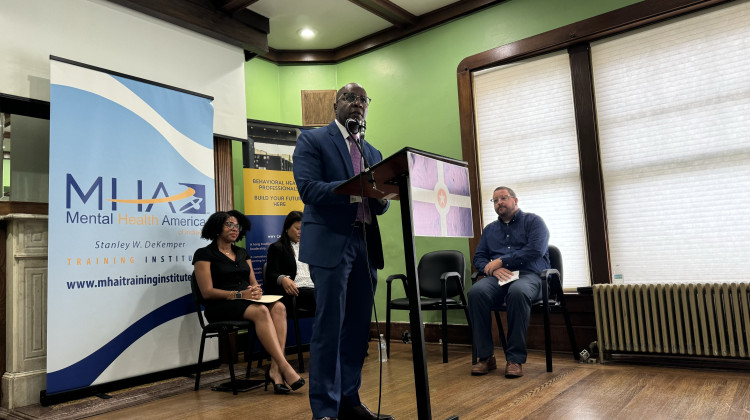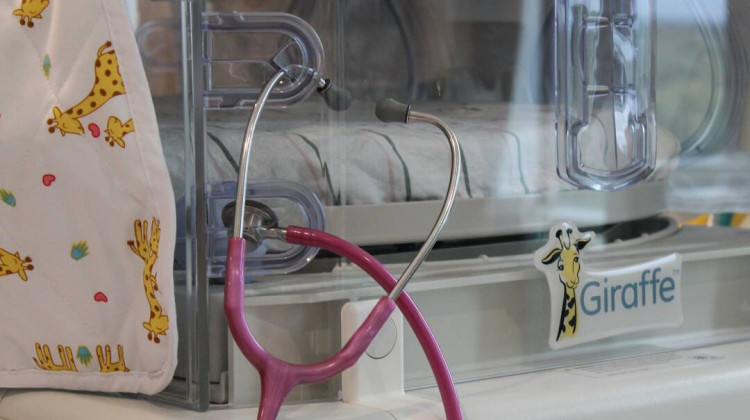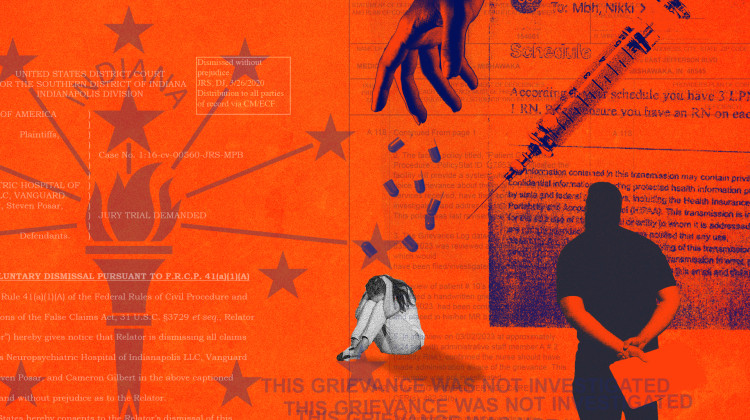
Leonce Jean-Baptiste, the co-founder of the Haitian Association of Indiana, at the pilot program announcement on Jul. 29, 2024 in Indianapolis.
Elizabeth Gabriel / Side Effects Public MediaSome Haitian and Burmese residents struggle to access health care due to a lack of translation services. But new funding will train Haitian and Burmese residents to become behavioral health professionals in their communities.
Over the next year, a total of 20 Haitian and Burmese community members will become certified peer recovery coaches through the Behavioral Health Cultural Equity Grants — a partnership between the Office of Public Health and Safety, Mental Health America Indiana, and leaders from Indianapolis' Haitian and Burmese communities.
Both communities have experienced political upheaval, leading to a large number of Haitians and Burmese resettlements in Indianapolis. Roughly 40,000 Burmese live in Marion County and The Haitian Times has reported that about 2,500 Haitians live in Indiana.
The journey to the United States can be treacherous, with many enduring hunger, family separation and other obstacles that can lead to trauma. Once resettled, Naw Phaw with the Burmese Community of North America said cultural stigma and access can be barriers to mental health treatment.
And only so many people can truly comprehend what they’re going through and communicate with them.
Nearly 70% of social workers and 76% of mental health counselors in the U.S. are White, according to the Bureau of Labor Statistics. In 2021, only 10% of psychologists provided services in languages other than English, according to estimates from the American Psychological Association.
“It is heartbreaking to see that our community has faced some challenges,” Phaw said. “And very sadly, we have lost quite [a number] of community members due to not having access to behavioral health services, mental health services and also not having awareness of what mental health can do to a person.”
Now mental health advocates hope this pilot program will empower the community with evidence-based and culturally responsive services in behavioral health, substance use and recovery support.
Justin Beattey, vice president of education and credentialing for the Mental Health America of Indiana, said this opportunity will also provide workforce development.
“We’re looking at how we truly include the local communities because, let's be honest, money goes away after a while,” Beattey said. “What doesn't go away is empowering the local community and providing them with the supports [and] the integrity and respect necessary.”
The behavioral health training through Mental Health America of Indiana will last roughly 40 hours over a three-week period, with a goal of employing participants in the Clinician Led Community Response Team, which responds to 911 calls from people going through a mental health crisis, or The Assessment and Intervention Center.
“As a community, Indianapolis only gets stronger when all its residents get together to support one another,” Martine Romy Bernard-Tucker, OPHS Director, said. “And when we support each other, everyone's life is better. So every resident in Indianapolis — Hoosier born or adopted — no matter your culture, or your background, We see you. We welcome you. We are here to support you physically and mentally.”
Leaders from the Haitian and Burmese communities will host community forums to learn more about people’s mental health needs. Recruitment for the training program will begin in October.
Contact WFYI’s health reporter Elizabeth Gabriel at egabriel@wfyi.org
 DONATE
DONATE






 Support WFYI. We can't do it without you.
Support WFYI. We can't do it without you.